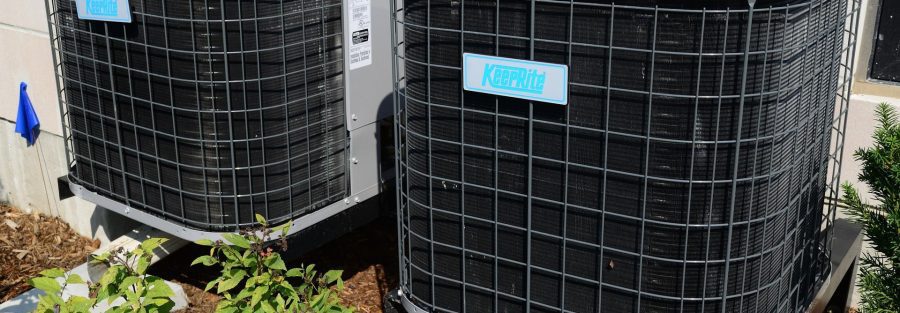Air conditioners are essential for comfort, especially during hot months. But what if you notice water dripping outside your unit? Many homeowners may be concerned when they see that their air conditioner is leaking.
Is it normal for an AC to drip water outside? This question often puzzles homeowners.
Understanding why your air conditioner leaks water outside can help you address potential issues.
In this guide, we’ll explore the most common causes of water leakage and when it becomes a problem.
We’ll also provide tips on preventing leaks and knowing when to call a professional.
Introduction to Air Conditioner Issues
Air conditioners play a vital role in keeping our homes cool and comfortable, especially during the hottest months of the year. However, even the best air conditioners can develop problems over time, and one of the most common issues homeowners encounter is an air conditioner leaking water. This type of leak can be more than just a nuisance—it can lead to water damage, reduced efficiency, and even costly repairs if left unchecked.
Several factors can cause an air conditioner to start leaking water. Issues like a clogged condensate drain line, frozen evaporator coils, or a damaged drain pan are frequent culprits. Sometimes, something as simple as a dirty air filter can restrict airflow, causing the evaporator coils to freeze and eventually leak water as they thaw. Low refrigerant levels can also contribute to freezing and subsequent leaks. That’s why regular maintenance—such as checking the air filter, monitoring refrigerant levels, and inspecting the drain line—is essential for preventing leaks and ensuring your unit runs smoothly. By staying proactive, you can avoid the hassle and potential water damage caused by a leaking air conditioner.
Understanding AC Unit Components
To effectively address and prevent an air conditioner leaking water, it’s important to understand the main components of your air conditioning system. The outdoor air conditioning unit, often called the condenser unit, is responsible for releasing heat absorbed from inside your home. Inside, the evaporator coils play a crucial role by absorbing heat from the warm air that passes over them, which helps cool your living space.
As the evaporator coils cool the air, they also produce condensation. This excess water drips into the drain pan, which is designed to collect and channel it away from the air conditioner unit. The condensate drain line then carries this water outside, ensuring proper drainage. However, if the drain line becomes clogged or the drain pipe is blocked, water can back up and cause leaks. Similarly, a broken condensate pump or a faulty condensate pan can result in water leakage around your air conditioning unit.
Dirty filters can also contribute to problems by reducing airflow, which may cause the evaporator coils to freeze. When these frozen evaporator coils eventually thaw, the resulting excess water can overwhelm the drain pan and lead to leaks. Regular maintenance, such as cleaning the coils, checking refrigerant levels, and ensuring the drain line is clear, is essential for keeping your system functioning correctly and preventing common causes of water leakage. By understanding how these components work together, you’ll be better equipped to spot issues early and keep your air conditioner running efficiently.
Is It Normal for an AC Unit to Drip Water Outside?
Yes, it is normal for an air conditioner to drip water outside. However, this is typical only under certain conditions.
Air conditioners work by cooling warm air, which leads to condensation. As a result, water droplets form, which then drain outside the unit. This is known as condensation runoff.
This process is most common in humid environments, where moisture in the air is high. On a hot day, you may notice more water dripping due to increased condensation.
A small amount of water should not be a concern. A small puddle under the outdoor unit is usually a sign of normal operation. However, if the dripping seems excessive, it might signal a problem.
Key points to consider include:
- Humidity levels
- Amount of water dripping
- Duration of water discharge
Understanding these factors can help determine if the water leakage is normal or requires attention.
How Does an Air Conditioner Produce Water?
Air conditioners create water through the process of cooling air. When warm air passes over the evaporator coil, it cools down. This cooling causes moisture to condense and form water droplets.
The water then drips into a drain pan. From there, it travels through the condensate line to be expelled outside. This water runoff is a normal part of the AC system’s operation as it removes moisture from the air.
The process is simple but essential for cooling and dehumidifying. The key steps involved are:
- Warm air intake
- Cooling via evaporator coil
- Condensation of moisture
- Water collection and drainage
This cycle ensures your space remains cool and comfortable.
Common Reasons for Water Dripping from Air Conditioner Outside
Water dripping from an air conditioner can be normal or a sign of issues. A leaking AC may be caused by several factors, including problems with ac units, the cooling system, or specific components like the drip pan.
Several common causes can lead to excessive water leakage. When these issues occur, it often means the conditioner is leaking water and needs attention.
Here are some frequent reasons:
- Clogged condensate drain line
- Dirty or clogged air filter
- Low refrigerant levels
- Damaged or rusted drain pan
- Improper installation or tilted unit
- Clog in the drip pan
- Frozen coils that thaw (coils melts)
Identifying the exact reason is the key step to solving the problem. A refrigerant leak can also result in water leakage. Issues with the outdoor unit or other hvac equipment can contribute to leaks. A clog in the system can cause water to back up, causing water to leak inside or outside. AC units may experience leaks when the cooling system is not functioning correctly. If you notice your conditioner leaking water outside, it may require air conditioner repair. If you cannot resolve the issue yourself, seek professional or professional help. Addressing leaks promptly is important to prevent water damage. Regular checks and maintenance are crucial for avoiding unnecessary repairs.
Clogged Condensate Drain Line
A clogged condensate drain line can cause water to back up. This often results in water dripping outside.
Dirt, debris, or algae in the line can create these clogs. Regular cleaning of the drain line can prevent this problem.
Dirty or Clogged Air Filter
Dirty air filters restrict airflow to the evaporator coil. This can cause the coil to freeze.
When it melts, excess water leaks out. Regularly replacing filters ensures proper airflow and avoids such issues.
Low Refrigerant Levels
Low refrigerant levels can cause the evaporator coil to freeze. The resulting melting leads to water leaks.
This issue often requires professional attention. An HVAC technician can recharge the refrigerant safely.
Damaged or Rusted Drain Pan
A damaged or rusted drain pan cannot hold water effectively. This leads to water leaking outside the unit.
Inspecting the drain pan is a simple fix. Replacing a faulty pan can solve the leakage problem.
Improper Installation or Tilted Unit
Improper installation or a tilted unit can disrupt water drainage. This misalignment can cause water to spill outside.
Ensuring the unit is level is crucial. Proper installation prevents this kind of issue from occurring.
When Is Water Leakage a Problem?
While some water leakage from an air conditioner is normal, excessive dripping is concerning. Understanding when leakage indicates a problem is essential for maintaining your unit.
Look for these signs that water leakage might indicate a problem:
- Unusual or continuous large puddles near the unit
- Musty odors or signs of mold near the AC
- Water stains on walls or ceilings
When these signs appear, immediate action is necessary. Ignoring such issues might lead to more severe damage or costly repairs.
Addressing excessive leakage promptly ensures the unit’s performance remains efficient and extends its lifespan. Regular monitoring helps prevent minor leaks from becoming major issues.
What Should You Do If Your AC Is Leaking Water Outside?
If your air conditioner starts leaking water outside, act quickly to prevent further issues. First, determine the cause of the leak by inspecting the unit for obvious problems.
Here are some steps you can take:
- Check and change clogged air filters
- Clean the condensate drain line
- Inspect the unit for any visible blockages
After completing these basic checks, if the problem persists, it’s time to consider more in-depth solutions. Persistent leaks could indicate underlying issues that need professional attention.
Ignoring these signs may lead to poor performance and higher energy bills. By taking prompt action, you can ensure your AC unit remains efficient and reliable.
Preventing Water Leaks from Your Air Conditioner
Preventive measures can save you from dealing with a leaky air conditioner. Regular maintenance is key to avoiding potential issues. By following some simple steps, you can keep your system in top condition.
Here are some tips to prevent water leaks:
- Schedule regular maintenance checks
- Replace or clean air filters monthly
- Inspect the condensate drain line for clogs
These actions can help prevent water leakage problems and extend the life of your air conditioning unit. Regular attention ensures efficiency and reliability, keeping your home comfortable and dry.
When to Call a Professional
If your air conditioner continues to leak water despite your efforts, it’s time to call in an expert. Persistent issues can be signs of deeper problems needing professional diagnosis.
An HVAC specialist can identify and resolve complex issues efficiently. Their expertise ensures your unit returns to optimal performance without further damage.
Conclusion: Stay Cool and Leak-Free
Understanding why your AC leaks water is essential. This knowledge helps maintain your unit efficiently.
Regular checks and maintenance prevent leaks, ensuring a comfortable, worry-free environment. Keep your home cool and your air conditioner in top shape.



